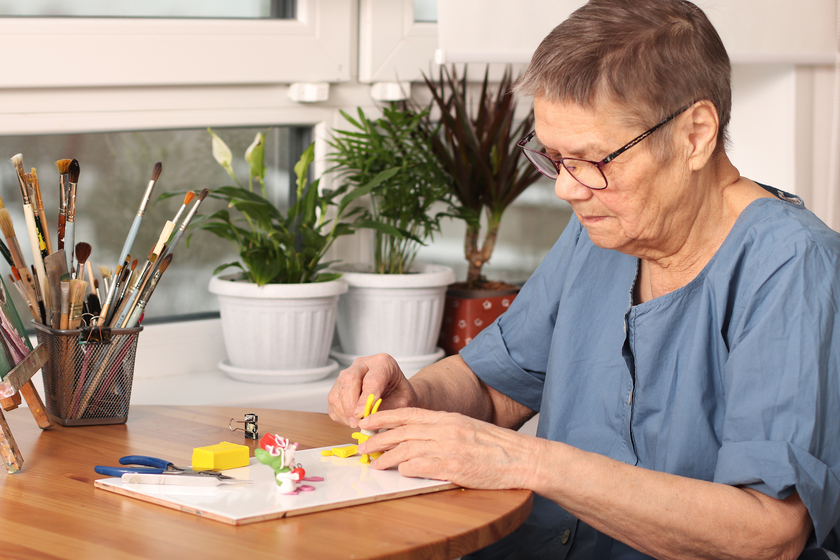Everything About Memory Care Providers: Why Tiny Memory Treatment Houses Are a Wonderful Selection
Memory treatment solutions play an important role in sustaining people with Alzheimer's and dementia. Small memory care homes attract attention for their tailored approach and intimate setting. With lower staff-to-resident ratios, these homes foster stronger connections and tailored care. Citizens gain from improved social interactions and a secure setting. As households explore options, understanding the one-of-a-kind benefits of small memory care homes becomes important. What factors should be thought about when picking the appropriate home?
Comprehending Memory Treatment Provider
While several might know with basic senior treatment choices, comprehending memory treatment services is essential for households encountering the challenges of cognitive decline. Memory treatment particularly satisfies people with problems such as Alzheimer's disease and other kinds of mental deterioration. These solutions give a structured atmosphere that concentrates on enhancing the lifestyle for citizens with specialized treatment and support.Memory care facilities are made to guarantee safety and security and safety and security, typically including safeguarded environments to stop wandering. Trained team member are available all the time to help with everyday tasks, medicine administration, and personal treatment. Furthermore, memory care programs frequently include cognitive excitement tasks, customized to engage residents and promote psychological health. Family members can take advantage of comprehending these services, as they allow informed choices concerning their enjoyed ones' treatment, making sure that their particular demands and choices are dealt with in a encouraging and compassionate manner.
The Benefits of Tiny Memory Care Houses
Little memory treatment homes supply distinctive benefits that can significantly improve the lifestyle for homeowners with cognitive problems. One considerable advantage is the intimate environment, which enables individualized communications among personnel and citizens. This smaller sized setup promotes significant relationships, reducing sensations of seclusion and anxiousness typically experienced by individuals with memory issues.Additionally, the reduced staff-to-resident ratio in small memory care homes enables caretakers to provide even more alert guidance and assistance. This method not only boosts safety and security yet likewise promotes a sense of protection for the residents.Moreover, small memory care homes can adapt promptly to the special requirements and choices of each homeowner, permitting a much more homelike environment. Such an environment can encourage social involvement and participation in activities, ultimately enhancing the day-to-day experiences of those coping with cognitive problems.
Personalized Treatment Program for Homeowners
Customized treatment strategies are important in memory care homes, as they deal with the one-of-a-kind needs and choices of each local. These strategies begin with extensive analyses carried out by skilled professionals, that examine cognitive capacities, clinical background, and individual rate of interests. This tailored strategy assurances that care is not just reliable yet also respectful of each person's dignity and autonomy.Moreover, individualized care plans are flexible, permitting modifications as citizens' needs progress in time. This adaptability promotes a complacency and experience, which is essential for individuals living with memory obstacles. Caretakers are trained to execute these plans consistently, giving support that aligns with the homeowners' routines and preferences.Ultimately, personalized treatment strategies boost the quality of life for homeowners by promoting interaction, well-being, and freedom, making them a fundamental aspect of memory treatment solutions in small memory care homes.
Creating a Home-Like Setting
Creating a home-like atmosphere is crucial for fostering comfort and experience in memory care settings, as it greatly impacts residents' psychological well-being. Small memory treatment homes frequently prioritize personalized touches, such as warm color combinations, family members pictures, and acquainted furnishings arrangements, which aid citizens feel more at simplicity. Including aspects evocative a typical home, like relaxing space and common locations, urges a feeling of belonging.Moreover, utilizing all-natural light and outside areas can improve the environment, promoting relaxation and tranquility. Team member play a considerable function in preserving this setting by involving with homeowners in a compassionate fashion, treating them like family. Routine activities, such as cooking or gardening, can likewise add to a home-like feel, using chances for locals to join purposeful experiences. Generally, producing a nurturing atmosphere sustains cognitive feature and psychological stability, making it an important aspect of memory care services.
Improved Social Communication and Neighborhood
Boosted social interaction and area are vital parts of memory care solutions. By promoting customized social interaction and producing a family-like environment, these solutions promote significant connections among residents. Group activities and events better motivate engagement, assisting people feel more included and supported.
Personalized Social Involvement
While social interaction is important for total wellness, lots of individuals with memory disabilities commonly battle to involve meaningfully with others. Customized social interaction in memory care homes addresses this challenge by producing customized tasks that cater to citizens' one-of-a-kind rate of interests and abilities. By concentrating on specific preferences, caretakers can promote links that reverberate deeply with everyone. Activities such as art treatment, music sessions, and assisted conversations advertise cognitive excitement and psychological expression. Additionally, little group setups motivate friendship and permit even more intimate communications, enhancing sensations of belonging. This technique not only deals with feelings of isolation but likewise encourages locals to keep a feeling of identity, inevitably adding to improved mental wellness and top quality of life.
Family-like Ambience
In a memory care setting, cultivating a family-like ambience substantially enhances social communication and develops a imp source sense of neighborhood among residents. Smaller sized memory treatment homes usually focus on intimate settings, permitting homeowners to form closer connections with each other and team member. This nurturing environment promotes trust fund, which is vital for people with memory impairments. Residents are more probable to talk and share experiences, creating a helpful network that alleviates sensations of solitude. The knowledge of common spaces and regimens adds to a sense of belonging, even more motivating social interaction (personalized memory care). In such setups, emotional bonds flourish, resulting in enhanced total wellness and a higher quality of life for citizens as they navigate their daily experiences together
Team Activities and Occasions

Safety And Security and Protection Features in Little Homes
Many little homes developed for memory care integrate essential security and safety attributes to guarantee the health of locals. These homes often use secure entrance and exit indicate stop wandering, a common problem amongst people with memory problems. Furthermore, surveillance systems and alarm systems enhance surveillance, guaranteeing that staff can promptly react to any kind of unusual activities.Interior designs are customized for safety and security, with lessened hazards such as sharp corners and clutter-free pathways. Handrails and non-slip flooring are typically mounted to minimize the threat of falls. Team member are trained in emergency protocols, guaranteeing they are planned for numerous situations.Moreover, individualized care plans might include assessment of private security Read More Here requirements, giving customized services for each resident. In general, these safety and safety and security features create a caring atmosphere where locals can thrive while keeping their self-respect and self-reliance.
Just how to Choose the Right Memory Treatment Home
Just how can family members guarantee they select the most ideal memory care home for their enjoyed ones? The decision needs cautious consideration of several factors. Households ought to review the center's personnel credentials and training, making sure that caregivers are experienced in taking care of memory-related conditions. Next off, it's important to examine the home's atmosphere, focusing on safety functions and whether it fosters a feeling of neighborhood and belonging. Seeing the facility can give understanding into everyday tasks and the social environment, which are vital for psychological excitement and emotional well-being. Furthermore, families must make inquiries regarding the care strategies supplied, ensuring they are tailored to private demands. Lastly, thinking about the home's place and ease of access for household brows through can add to a smoother shift. By addressing these elements, family members can make an informed decision that prioritizes their enjoyed one's comfort and lifestyle in a memory treatment setup.
Frequently Asked Concerns
What Certifications Should Personnel Members in Memory Treatment Houses Have?
Team members in memory care homes ought to possess pertinent accreditations, experience in mental deterioration treatment, solid interaction skills, and concern. Ongoing training in behavioral monitoring and healing interventions improves their capability to support homeowners successfully.
Exactly How Do Memory Treatment Services Differ From Conventional Assisted Living?
Memory care solutions concentrate specifically on individuals with memory disabilities, giving specific support and structured atmospheres. In contrast, standard assisted living uses basic aid with day-to-day activities, doing not have the customized strategy essential for those with cognitive obstacles.
What Sorts of Activities Are Supplied in Memory Care Houses?
Memory care homes commonly offer a selection of tasks created to involve homeowners. Common options consist of art treatment, music sessions, cognitive games, exercises, gardening, and get-togethers, all focused on improving well-being and cognitive function.
Can Homeowners Bring Their Own Personal Belongings to Memory Treatment Homes?
Locals can typically bring their own possessions to memory care homes, enabling them to individualize their space - personalized memory care. This practice helps develop a familiar environment, promoting convenience and a feeling of identification for the individuals

Exactly How Are Member Of The Family Associated With the Treatment Refine?
Relative play a necessary role in the care process, typically getting involved in decision-making, participating in treatment conferences, and offering psychological support. Their involvement cultivates a collective environment, enhancing the citizen's total wellness and quality of life. While several might be familiar with basic senior care choices, recognizing memory care services is crucial for families encountering the difficulties of cognitive decline. These services offer an organized setting that concentrates on enhancing the high quality of life for citizens with specialized care and support.Memory care centers are created to guarantee security and safety, typically featuring safeguarded atmospheres to stop straying. Customized care strategies are crucial in memory care homes, as they cater to the unique needs and preferences of each citizen. Personnel members in memory care homes need to possess pertinent accreditations, experience in mental deterioration treatment, solid interaction abilities, and empathy. Memory care services concentrate particularly on individuals with memory impairments, giving specialized support and structured environments.